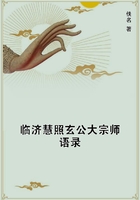"My dear Sir,--I must not delay thanking you for your kind letter, with its candid and able commentary on 'Villette.' With many of your strictures I concur. The third volume may, perhaps, do away with some of the objections; others still remain in force. I do not think the interest culminates anywhere to the degree you would wish. What climax there is does not come on till near the conclusion; and even then, I doubt whether the regular novel-reader will consider the 'agony piled sufficiently high' (as the Americans say), or the colours dashed on to the canvas with the proper amount of daring. Still, I fear, they must be satisfied with what is offered: my palette affords no brighter tints; were t to attempt to deepen the reds, or burnish the yellows, I should but botch.
"Unless I am mistaken, the emotion of the book will be found to be kept throughout in tolerable subjection. As to the name of the heroine, I can hardly express what subtlety of thought made me decide upon giving her a cold name; but, at first, I called her 'Lucy Snowe' (spelt with an 'e'); which Snowe I afterwards changed to 'Frost.' Subsequently, I rather regretted the change, and wished it 'Snowe' again. If not too late, I should like the alteration to be made now throughout the MS. A COLD name she must have; partly, perhaps, on the 'lucus a non lucendo' principle--partly on that of the 'fitness of things,' for she has about her an external coldness.
"You say that she may be thought morbid and weak, unless the history of her life be more fully given. I consider that she is both morbid and weak at times; her character sets up no pretensions to unmixed strength, and anybody living her life would necessarily become morbid. It was no impetus of healthy feeling which urged her to the confessional, for instance; it was the semi-delirium of solitary grief and sickness. If, however, the book does not express all this, there must be a great fault somewhere. I might explain away a few other points, but it would be too much like drawing a picture and then writing underneath the name of the object intended to be represented. We know what sort of a pencil that is which needs an ally in the pen.
"Thanking you again for the clearness and fulness with which you have responded to my request for a statement of impressions, Iam, my dear Sir, yours very sincerely, "C. BRONTE.""I trust the work will be seen in MS. by no one except Mr. Smith and yourself.""Nov. 10th, 1852.
"My dear Sir,--I only wished the publication of 'Shirley' to be delayed till 'Villette' was nearly ready; so that there can now be no objection to its being issued whenever you think fit. About putting the MS. into type, I can only say that, should I be able to proceed with the third volume at my average rate of composition, and with no more than the average amount of interruptions, I should hope to have it ready in about three weeks. I leave it to you to decide whether it would be better to delay the printing that space of time, or to commence it immediately. It would certainly be more satisfactory if you were to see the third volume before printing the first and the second;yet, if delay is likely to prove injurious, I do not think it is indispensable. I have read the third volume of 'Esmond.' I found it both entertaining and exciting to me; it seems to possess an impetus and excitement beyond the other two,--that movement and brilliancy its predecessors sometimes wanted, never fails here.















